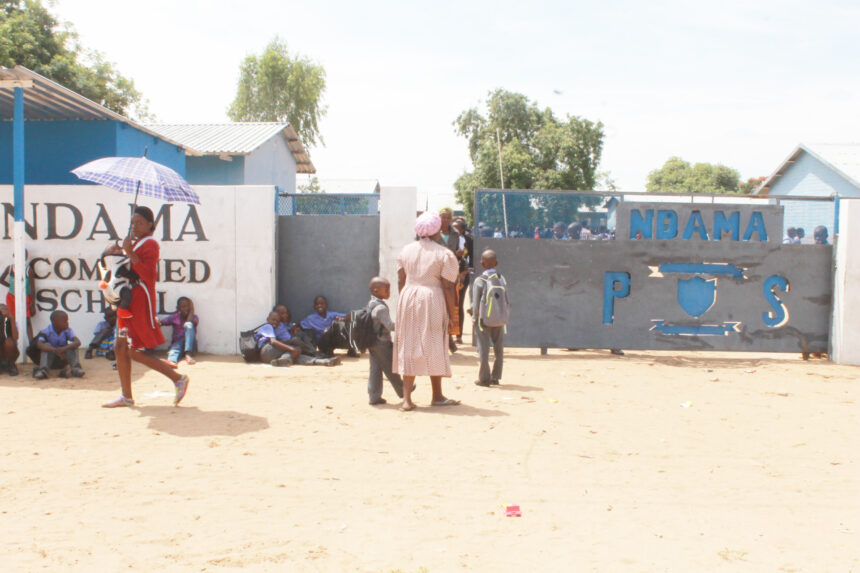NDU – The condition of ablution facilities at Ndama Junior Primary School in Rundu is worse than that of prison cells, Namibia National Teachers Union secretary general Loide Shaanika said here on Wednesday.
Accompanied by officials from the Ministry of Health and Social Services and the Ministry of Education, Arts and Culture, she conducted an assessment of the school’s ablution facilities, following media reports that learners were
relieving themselves in the schoolyard for three weeks due to a lack of water, broken toilets and full septic tanks.
During the assessment, she was informed by school management that the septic tanks are emptied every two weeks, a situation she described as inhumane.
“Waiting for two weeks for people to relieve themselves before the tanks are emptied is inhumane. Not even a prison cell looks like what I’ve seen here,” she expressed. She said teachers and learners at the school cannot operate in such an unhealthy environment, saying the employer must ensure that their working environment is conducive.
Shaanika said the findings of the assessment
will be reported to the highest authority in the education ministry.
She further condemned the bureaucratic process of the education ministry for procuring services, saying it takes too long.
“It takes eight months to get a teacher into a classroom, and two weeks for the ministry to
identify someone to empty septic tanks at a school. This is uncalled for,” she complained.
She said 34 years after independence, schools cannot still be subjected to using septic tanks, but should instead be connected to the town’s main sewer system.
She and her team also visited Sarusungu Combined School and Kaisosi Combined
School, which are also experiencing challenges with septic tank issues. Education director in the Kavango East region Christine Shilima said the directorate will try its best to get a bidder to pump the septic tanks in a short period.
She suspended classes until further notice at Ndama Junior Primary School. The school has about 1 300 learners. -Nampa


